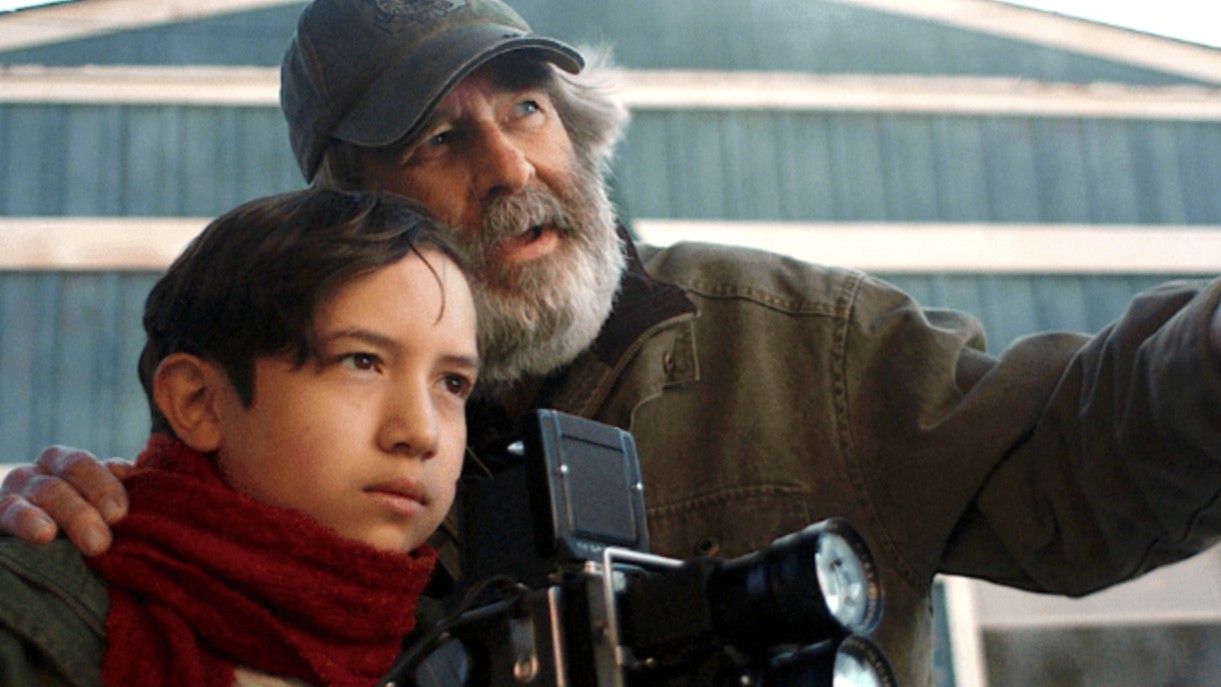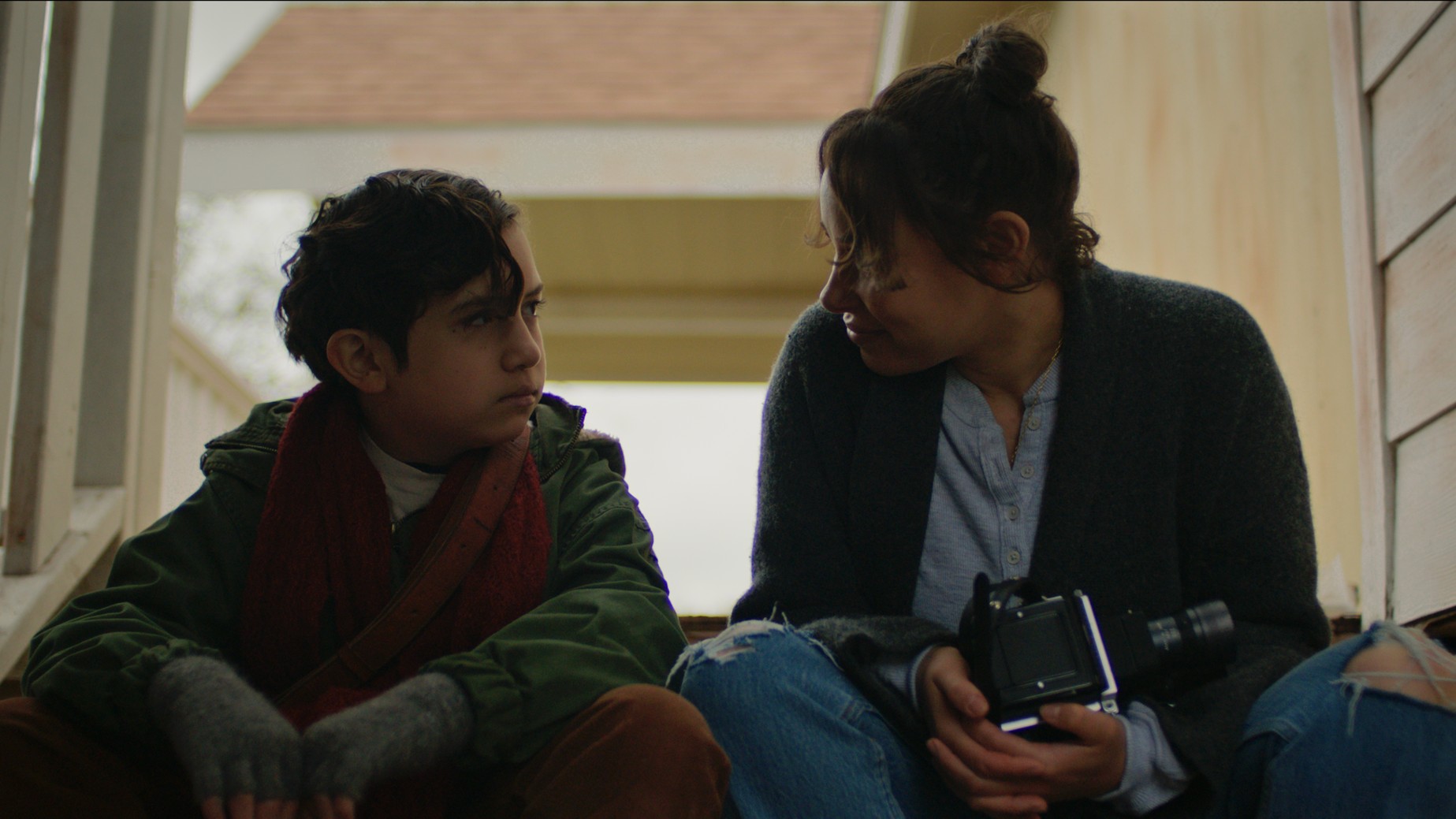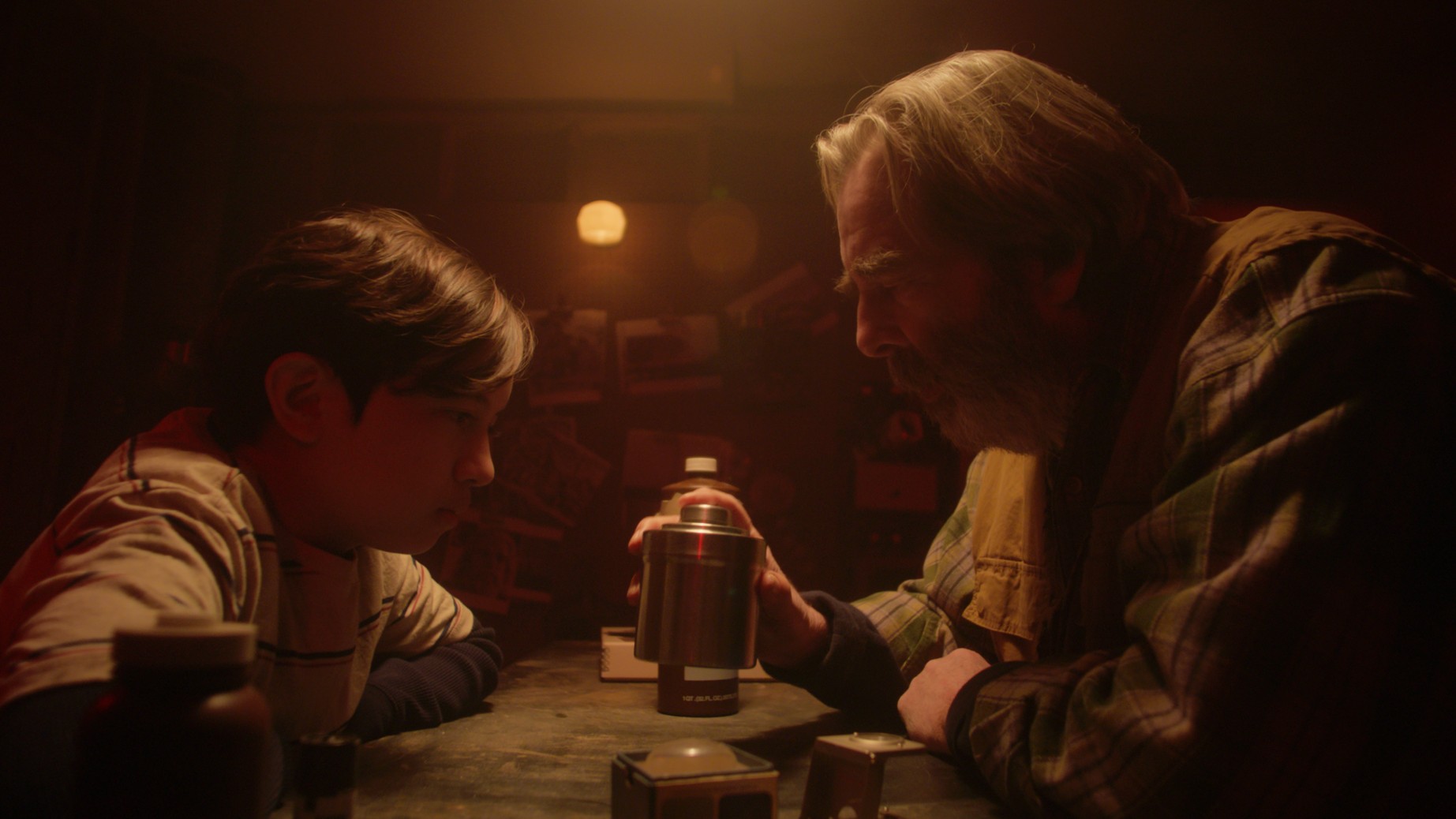
The history of cinema is full of movies about photographers, from films about real-life shooters to dramas about fictional photographers. But when it comes to the latter, the character's use of a camera is usually mainly a plot device. There's often not a lot of discussion about technique or the broader themes of photography as such.
New film Camera, though, is a marked exception to this rule. As the title suggests, this heartwarming new drama puts photography firmly at the center of its narrative, and is making waves in the world of independent movies.
Available to stream on Amazon Prime TV and Apple TV in the US, the film has already garnered critical acclaim and two prestigious awards: Best Director at the Beverly Hills Film Festival and Best Family Film at the Julien Dubuque International Film Festival.
What's it about?
Set in a struggling American fishing town, the film follows Oscar, played by newcomer Miguel Gabriel: a nine-year-old boy who cannot speak, but finds his voice through the lens of a broken film camera.
Bullied and misunderstood, his world changes when he meets Eric (Beau Bridges), the owner of a local repair shop. Their unlikely friendship, sparked by a shared interest in a damaged film camera, becomes the catalyst for personal growth and community healing.
When the film is broadly focused on disability and emotional relationships, the boy's camera and what he creates with it is no mere MacGuffin, but fully explored and beautifully interwoven into the drama.
And that's perhaps not surprising.
Get the Digital Camera World Newsletter
The best camera deals, reviews, product advice, and unmissable photography news, direct to your inbox!
Uniting two artforms
Director Jay Silverman is himself a celebrated stills photographer with over 35 years of experience, and he specifically set out to transfer an authentic and nuanced understanding of the medium to the screen.

"Through the interplay between still images and moving ones, I want Camera to come alive, to be as real to the audience as a thinking, feeling organism, and for it to move them towards a brighter future after the picture fades to black," he explains. To bring that vision to life, cinematographer Andrew Jarrett employed still lenses to create a look that bridges the gap between motion pictures and still photography.
The result is a visually striking film that pays homage to the art of capturing moments. Without giving too much away, the film celebrates the art form as a means of communication, self-expression, and connection – themes that will resonate deeply with anyone who has ever picked up a camera.
The joy of analogue
One of the most interesting aspects of Camera for photographers is its use of a vintage twin-lens reflex film camera as a central plot device. As mentor Eric teaches the young Oscar about how to get the most out of this aging technology, it's both a nostalgic journey for older hands who remember analog and an introduction to it for younger ones who don't, with an emphasis on the art of "making every frame count."

There's a nod to the changing nature of photography in the modern world too. And more broadly, Bridges' portrayal of a mentor figure who recognizes and nurtures artistic talent is likely to strike a chord with photographers who've either benefited from or provided mentorship in their careers.
Indeed, the director had plenty of his own experience to draw on here. As a teenager in California's San Fernando Valley, his photography teacher not only guided him but also introduced him to prominent LIFE Magazine photographers. Then, at just 15, Silverman began shadowing a professional photographer after school, learning the trade through hands-on experience.
More broadly, Camera also touches on themes of seeing beauty in unexpected places – a skill that's arguably at the heart of all photography. Oscar's ability to capture the hidden charm of his struggling town through his lens reminds us of the discipline's power to reveal new perspectives and change perceptions.
Compelling stories
Of course, we wouldn't ever recommend a movie just because it's about photography. But this is a pretty great movie in general, and if you like heartwarming family dramas, you're going to love it.
Beau Bridges, who delivers what some critics are calling one of the best performances of his career, brings depth and warmth to the character of Eric, while newcomer Miguel Gabriel is outstanding as his young charge.
Ultimately, Camera – which was shot in just 18 days – is not just a film about photography. As the non-verbal Oscar finds his voice through images, this stirring and uplifting story demonstrates how the medium can transcend traditional communication barriers, and stands as testament to its ability to bridge gaps and foster understanding.
Tom May is a freelance writer and editor specializing in art, photography, design and travel. He has been editor of Professional Photography magazine, associate editor at Creative Bloq, and deputy editor at net magazine. He has also worked for a wide range of mainstream titles including The Sun, Radio Times, NME, T3, Heat, Company and Bella.

